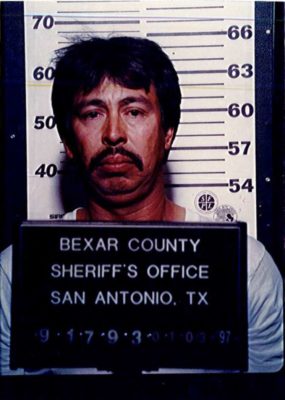An illegal immigrant living near San Antonio pleaded guilty this week to fraud and identity theft charges after admitting he used a citizen’s identity to vote.
Sixty-three-year-old Enrique Salazar Ortiz reportedly voted in numerous elections over the past 24 years using the name Jesse H. Vargas Jr. – a former San Antonio resident who moved to California decades ago, the San Antonio Express News reports.
“He’s been voting since at least 1994,” Bexar County elections administrator Jacque Callanen said.
Federal agents raided Ortiz’s suburban San Antonio home in August 2017 after his application to renew a passport with Vargas’ name was flagged for potential fraud. Investigators realized two men who did not look alike were using the same name and date of birth. Ortiz told agents he purchased documents with Vargas’ name for $20 and has used it ever since. He obtained a passport with the information in 2006, which he used to travel, and admitted to voting in the last presidential election, records show.
“When asked if he had ever voted, at first Mr. Salazar Ortiz was hesitant to answer, but when confronted with voting records, he indicated that he voted in the most recent election,” according to his plea deal cited by the News.
Ortiz would not divulge how many times he committed voter fraud, but a relative of the real Vargas said the 57-year-old moved out of Bexar County as a teen, the Associated Press reports.
Ortiz pleaded guilty to making a false statement in a passport application, voter fraud, and aggravated identity theft during a hearing before U.S. District Judge Fred Biery on Thursday, when he admitted he was born in Veracruz, Mexico and is not a legal citizen.
Biery asked Ortiz directly whether he knew he was breaking the law by casting a ballot.
“Unfortunately, yes, I knew,” he said.
The judge set Ortiz’s sentencing for Jan. 24.
Ortiz, who is married to a U.S. citizen and has a daughter, faces up to a decade in prison, with a minimum of two years for the aggravated identity theft charge, the News reports.
Ortiz pleaded guilty to his crimes the same week San Francisco announced noncitizens can now vote in local school board elections, including those who are in the country illegally. Other places including Takoma Park and Hyattsville City in Maryland, as well as Amherst and Cambridge, Massachusetts allow noncitizens to vote, as well, the Los Angeles Times reports.
As of Tuesday, only 42 noncitizens of San Francisco had signed up to vote, in part because their information could be turned over to U.S. immigration officials. A 2017 Pew Research report estimates 35,000 people live in San Francisco illegally, according to the news site.
And while illegal immigrants can legally vote in some local elections, illegal voting in federal elections isn’t uncommon, according to the Federation for American Immigration Reform.
“For example, in East Chicago, Indiana, a city with 30,000 residents, voting fraud was so systemic in 2003 that the State Supreme Court ordered a new election with heightened verification. When unlawful voters were prohibited from casting a ballot the outcome of the election changed,” FAIR reports.
“The problem is not unique to Indiana. A 2013 National Hispanic Survey study by Republican pollster John McLaughlin asked a sample of 800 likely Hispanic voters if they were American citizens. 13 percent admitted they were not.
“In 2014, a study released by a team of professors from Old Dominion University and George Mason University estimated that approximately 6.4 percent of noncitizens voted in the 2008 presidential election. They also surmised that 2.2 percent voted in the 2010 midterm election. In addition, the study estimated that 80 percent of noncitizens who appeared to have voted cast their ballots in favor of one party,” according to FAIR.
“Noncitizens are believed to have voted in these elections in numbers great enough to have affected the outcome.”

Leave a Comment
COMMENTS POLICY: We have no tolerance for messages of violence, racism, vulgarity, obscenity or other such discourteous behavior. Thank you for contributing to a respectful and useful online dialogue.